
A percussion instrument is a musical instrument that is sounded by being struck or scraped by a beater ; struck, scraped or rubbed by hand; or struck against another similar instrument. The percussion family is believed to include the oldest musical instruments, following the human voice.

A pipe band is a musical ensemble consisting of pipers and drummers. The term used by military pipe bands, pipes and drums, is also common.
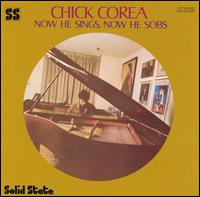
Now He Sings, Now He Sobs is a jazz piano trio album by Chick Corea, released December 1968 on Solid State Records. In more recent times, it was acquired by EMI/Blue Note and reissued on CD with bonus tracks. The musicians on this album are Corea (piano), Miroslav Vitouš (bass), and Roy Haynes (drums). Aside from the jazz standard "My One and Only Love" and Thelonious Monk's "Pannonica", all tracks are original compositions. The same line-up recorded on ECM Records in 1981 Trio Music and in 1986 Trio Music, Live in Europe.

"Rock and Roll Music" is a 1957 hit single written and recorded by rock and roll star Chuck Berry. The song has been widely covered and is recognized as one of Berry's most popular and enduring compositions. In the fall of 1957, his recording reached number 6 on Billboard magazine's R&B Singles chart and number 8 on its Hot 100 chart.
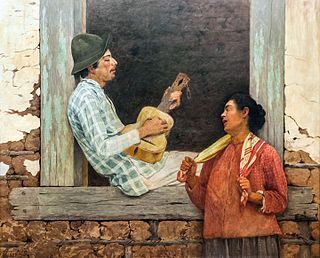
A folk instrument is a musical instrument that developed among common people and usually does not have a known inventor. It can be made from wood, metal or other material. Such an instrument is played in performances of folk music.

"Roll Over Beethoven" is a 1956 hit single written by Chuck Berry, originally released on Chess Records, with "Drifting Heart" as the B-side. The lyrics of the song mention rock and roll and the desire for rhythm and blues to replace classical music. The title of the song is an imperative directed at the composer Ludwig van Beethoven to roll over in his grave in reaction to the new genre of music that Berry was promoting. The song has been covered by many other artists, including the Beatles and the Electric Light Orchestra. Rolling Stone magazine ranked it number 97 on its list of the "500 Greatest Songs of All Time".

Timbrel is an album by Terl Bryant. Released in 1999.

Brand New Dance is an album which Emmylou Harris released on October 16, 1990. Produced by Richard Bennett and Allan Reynolds, the album mixed a rather eclectic collection of covers, including Bruce Springsteen's "Tougher Than the Rest", and Dave Mallett's "Red, Red Rose". Though it sold reasonably well, it was Harris' first studio album in fifteen years to yield no top forty country singles, and marked the beginning of a commercial decline for the singer, which would ultimately lead her to redirect her music away from mainstream country, a few years later.
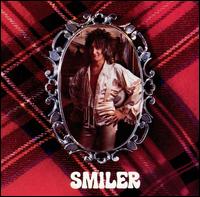
Smiler is Rod Stewart's fifth album, fifth solo album and final album for Mercury Records, released in 1974. It became the first album by Rod Stewart as a solo artist to become critically panned. Although it reached number 1 in the UK album chart, it stalled at number 13 in the US. The album was largely considered to be an unadventurous retread of what he had done before, including covers of Chuck Berry, Sam Cooke and Bob Dylan songs, as well as a duet with Elton John of John's song "Let Me Be Your Car". Stewart's one attempt at adventurousness was a cover of Carole King's "(You Make Me Feel Like) A Natural Woman" where 'Woman' is switched to 'Man'. This track was selected for special derision by critics. The release of the album itself was held up for five months due to legal problems between Mercury Records and Warner Bros. Records. This album sold 1 million copies worldwide.

One Dozen Berrys is the second studio album of Chuck Berry, released in March 1958 on Chess Records, catalogue LP 1432. With the exception of five tracks, "Rockin' at the Philharmonic," "Guitar Boogie," "In-Go," "How You've Changed," and "It Don't Take but a Few Minutes," all selections had been previously released on 45 rpm singles. It was also released in the United Kingdom. In 2012, Hoodoo reissued the album with Chuck Berry Is on Top on the same CD. Sheldon Recording Studio, where all of the recordings were made, was located at 2120 South Michigan Ave. in Chicago and eventually became Chess Studios.

Chuck Berry is the eighteenth studio album by Chuck Berry, released in 1975 by Chess Records. Some pressings of this album carry the title Chuck Berry '75. Berry's daughter, Ingrid, contributed backing vocals.

Chuck Berry in Memphis is the eleventh studio album by Chuck Berry, released in 1967 by Mercury Records.
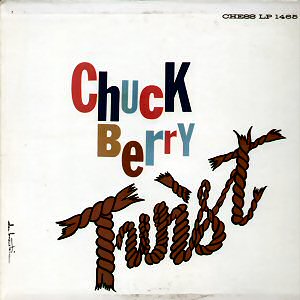
Chuck Berry Twist is the first compilation album by Chuck Berry, released by Chess Records in February 1962, during Berry's imprisonment. The title was an attempt to capitalize on a new dance craze, the Twist, introduced by Chubby Checker in 1960, even though none of the songs musically conformed to the Twist style. The album was reissued a year later with a new title, More Chuck Berry. An album with that title was released in the UK by Pye International Records in 1964, featuring the same cover but a completely different track listing.

Showdown is an Electric Light Orchestra (ELO) compilation album, covering their Harvest Records years. It is the first in a very long line of Electric Light Orchestra compilation albums. It was also the first time the hit single "Showdown" featured on an album in the UK.

The Light Shines On was a compilation album by Electric Light Orchestra (ELO). This is the second Harvest compilation of their early years with the label, followed in 1979 by volume 2.

The Light Shines On Vol 2 is a compilation album by Electric Light Orchestra (ELO). Released in 1979 by Harvest Records, it is a compilation of their early years with the label.

Live at the Cow Palace is a live album by the American rock band the Grateful Dead. It was recorded at the Cow Palace in Daly City, California, on New Year's Eve, 1976. Released in 2007, it was the first Grateful Dead album produced under contract with Rhino Records. Pre-orders through the Grateful Dead Store received a bonus disc.
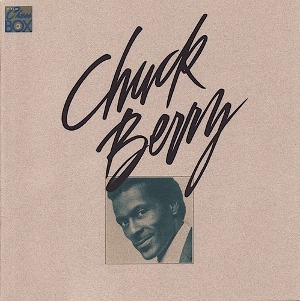
The Chess Box is a compact disc box set compilation by Chuck Berry. It is one in a series of box sets issued by MCA/Chess in the late 1980s. The Chuck Berry set is the most prominent of these, having won a Grammy Award for Best Historical Album in 1989. Berry's Chess Box was reissued on vinyl in 1990.
The Bucks were a band who played music based largely on Irish folk, touring briefly and recording and releasing one album for WEA Records in 1994. While remaining obscure, the band was formed by well-known Irish musicians Ron Kavana and Terry Woods. Paddy Keenan played pipes. James McNally was also a member, as were several members of Kavana's primary group, The Alias Band.





















